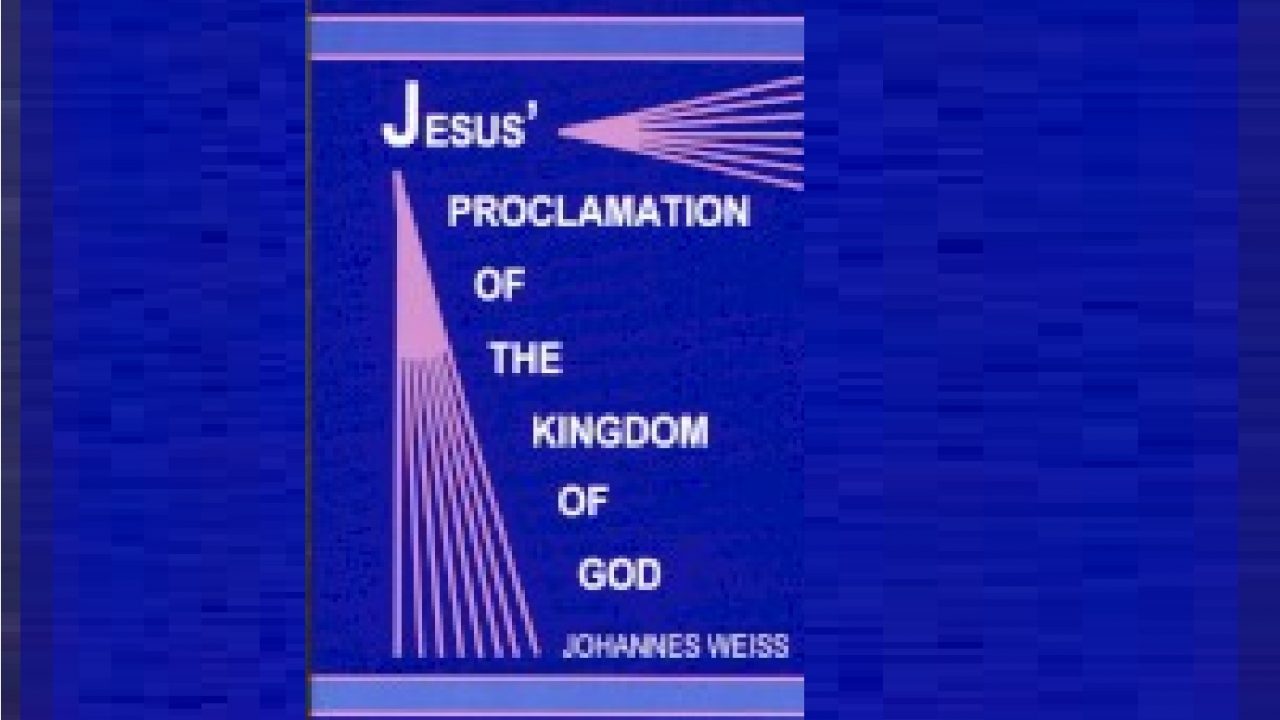In what sense did Jesus speak of a presence of the kingdom of god, and is this the sense in which the concept is normally used today?
When it says the tax collectors and prostitutes precede the leaders of the people “entering the kingdom” [Matt. 21:31 ], it only means that they are ahead of them on the way that leads to the Kingdom of God: they have a head start; they set a good example. But they are by no means within the Kingdom of God; rather, they are traveling toward it. And the notion that Matt. 11:11 presupposes the possibility that some already may be in the Kingdom of God is proven to be quite the opposite by the next verse.
I contend that these words can and must be understood only in the sense of a rebuke. Jesus is describing the kind of people who had been aroused by the Baptist’s preaching to the point of impassioned agitation. Jesus rebukes them because they wish to seize by force what they should be waiting for instead. They want to climb up to heaven to haul the Kingdom down (Rom. 10:6).
What speaks more forcefully than all else against the kind of interpretation to which we have been objecting is the fact that Jesus put in the mouths of his disciples, as the first petition of their prayer. Let us be careful lest somehow or other we play down this fact and these words. The meaning is not “may thy Kingdom grow,” “may thy Kingdom be perfected,” but rather, “may thy Kingdom come.” For the disciples, the kingdom is not yet here, not even in its beginnings; therefore Jesus bids them to “pursue His Kingdom”(Luke 12:31).
This yearning and longing for its coming, this ardent prayer for it, and the constant hope that it will come— that it will come soon—this is their religion. We would import an opaque and confusing element into this unified and clearly unambiguous religious frame of mind were we to think somehow of a “coming in an ever higher degree” or of a growth or increase of the Kingdom. Just as there can be no different stages of its being….
Either the kingdom is here, or it is not yet here. For the disciples and for the early church it is not yet here. And when Jesus calls them blessed because of what they see and hear (Matt. 13 :17) , the fact that glorious prophecies have been fulfilled in their presence is surely sufficient basis for this declaration—but the one great and foremost promise still remains to be fulfilled.
To be sure, the Pharisees were unaccustomed to the idea that the establishment of the Kingdom would proceed from God’s side so quietly, so gradually, and moving from the inward to the outward. For this reason they would have understood this saying of Jesus no better than they did the other, Luke 17:21. Jesus’ answer evidently struck them as startling. Therefore Jesus asserts something here which generally he does not presuppose elsewhere: that the Kingdom is already here in some invisible fashion. He clearly wishes to impress upon the minds of his malevolent questioners how, though they have eyes, they do not see. What is taking place in their midst—how on all sides the power of the devil is being defeated and consequently the rule of God is already beginning— escapes them completely. In these two sayings, Jesus stressed a side of the matter which usually is not emphasized elsewhere.
Although they normally thought only about the glorious external establishment of the messianic Kingdom, what is described here is the altogether supranatural and superhistorical establishment of the power of God over Satan, to whom for a while the world had been subjected [Luke 4 : 6 ].
Therefore, if Jesus already speaks of a Kingdom of God which is present, it is not because there is present a community of disciples among whom God’s will is done, as if God’s rule were realized from the side of men. Rather, Jesus does so because by his own activity the power of Satan, who above all others is the source of evil, is being broken. But these are moments of sublime prophetic enthusiasm, when an awareness of victory comes over him.




